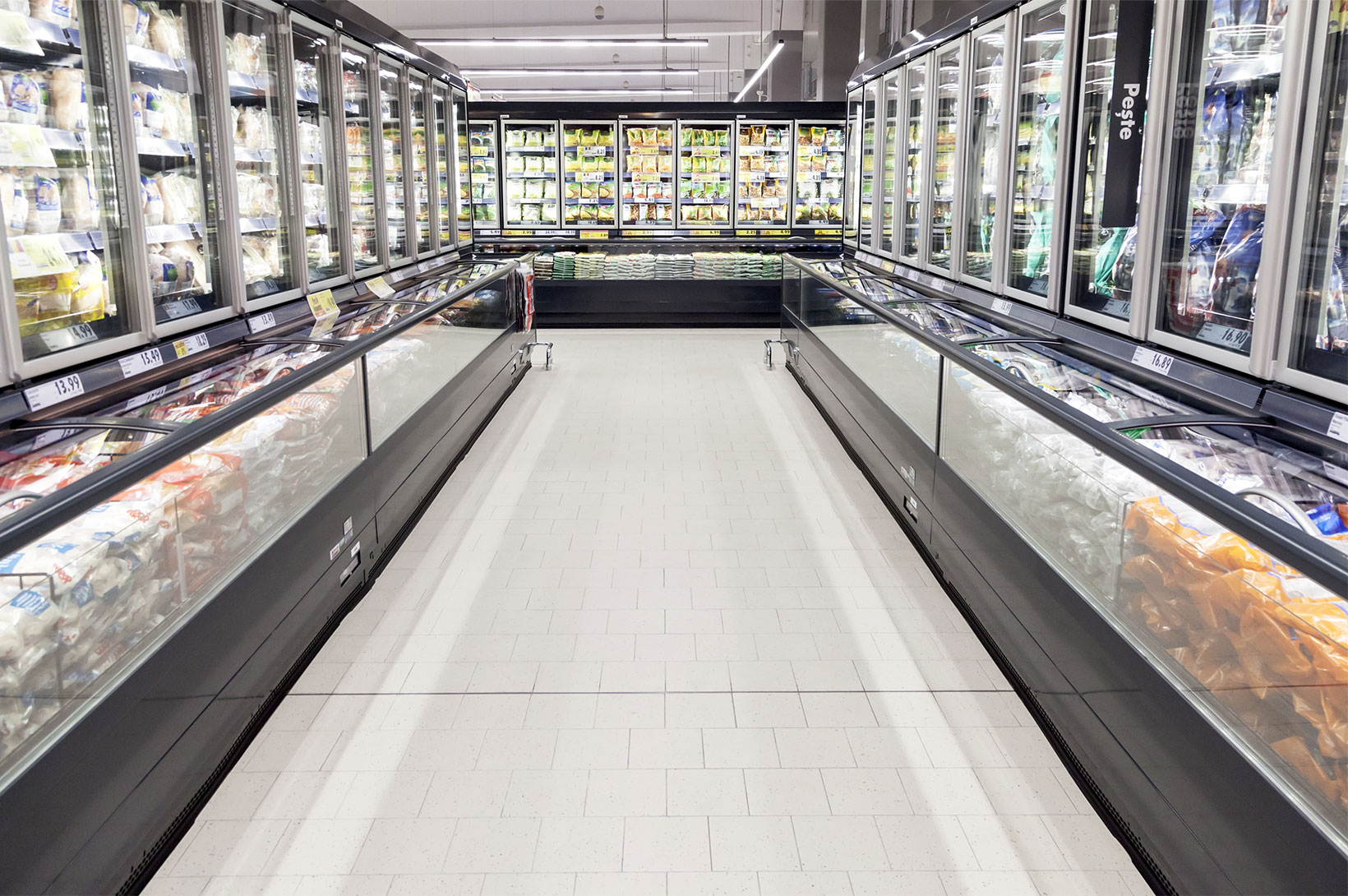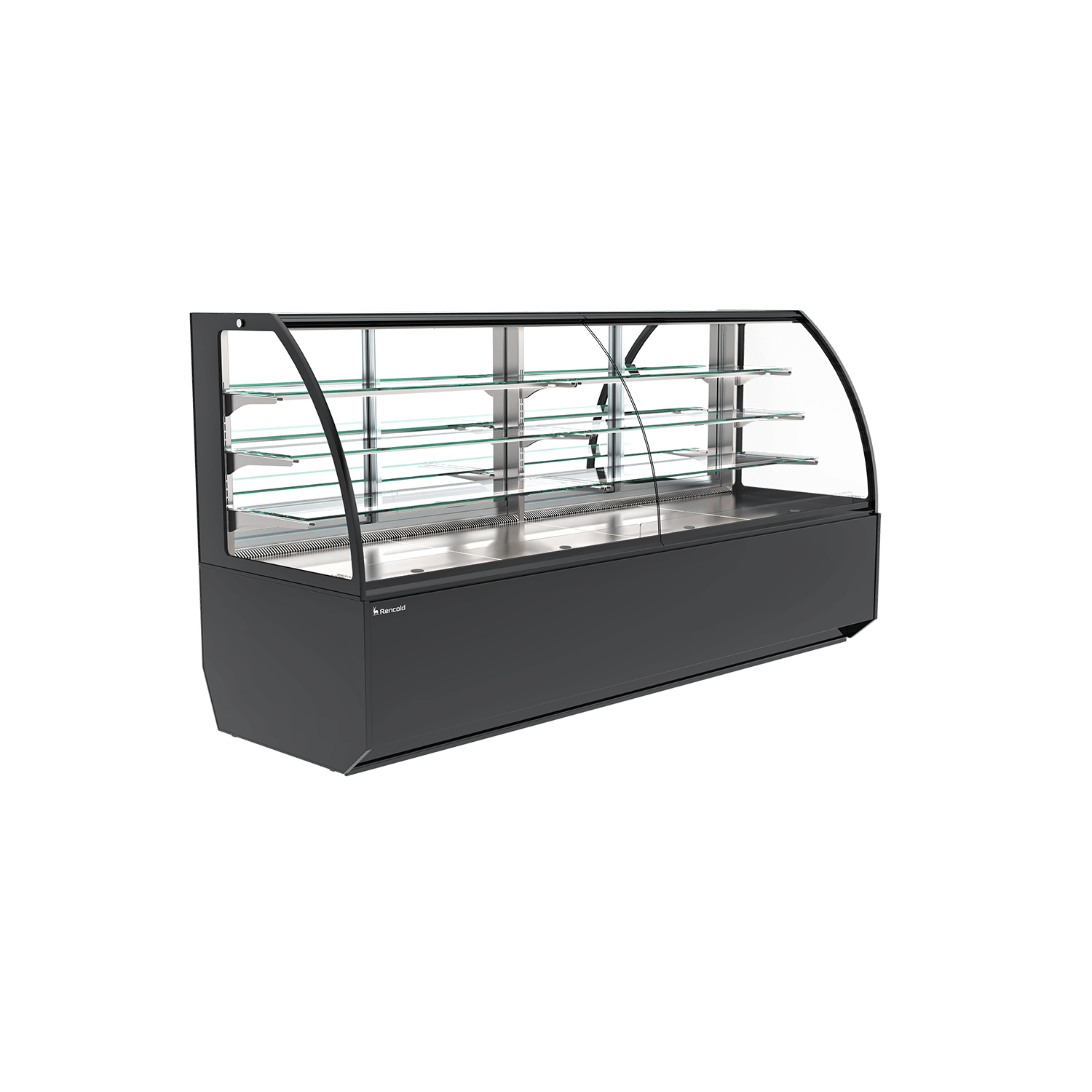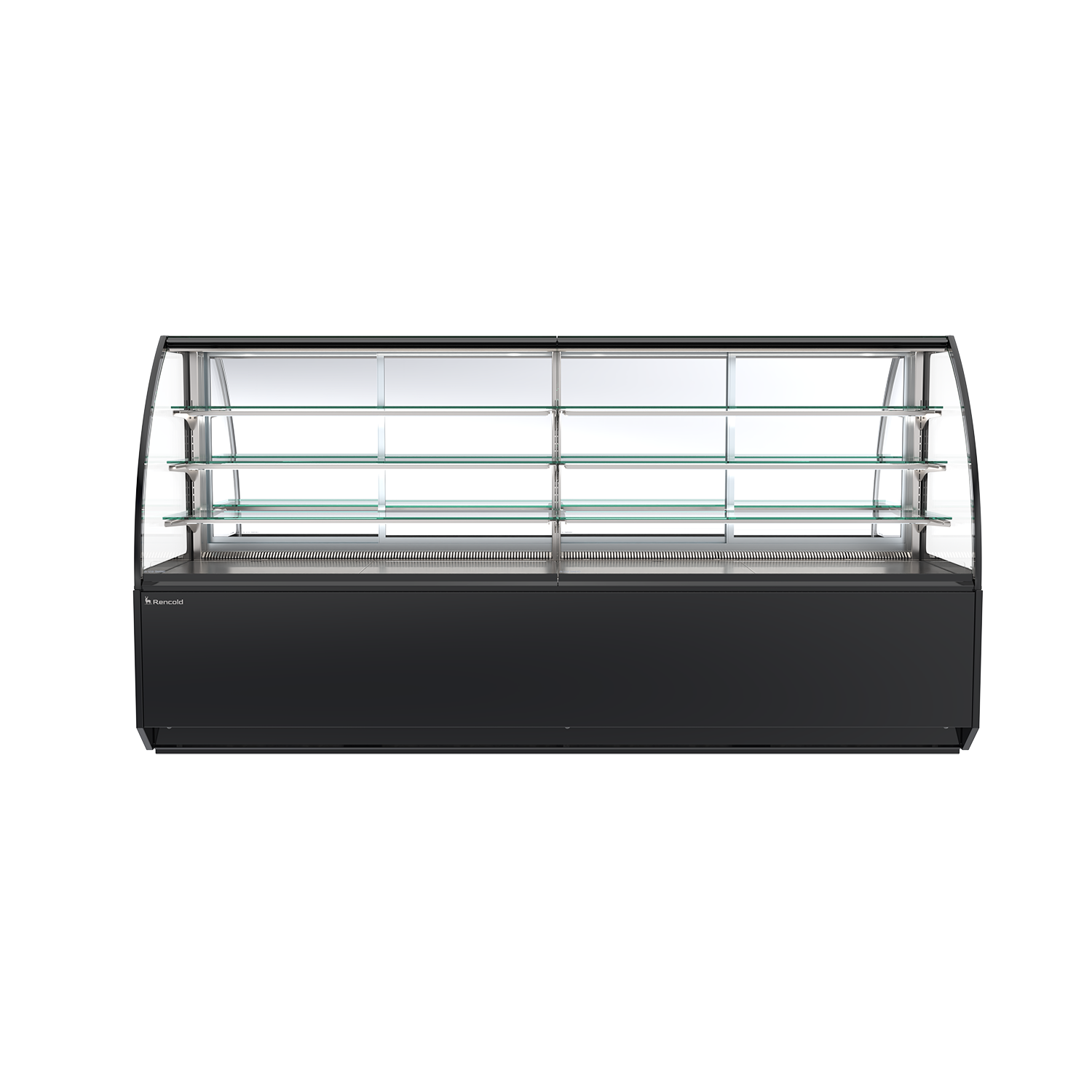
Our innovative and highly efficient products for markets and warehouses. ALL PRODUCTS

| Temperature Class |
|
||
| DP | MT | FV | |
| 25°C / 60% RH (EN ISO 23953-2) | |||
| Available Modules | |||||
| Height (mm) | 937 | 1250 | Gondola / Head | ||
| Side Cover (mm) | 22 | 22 | 22 | 22 | |


Industrial refrigerators are cooling systems of critical importance used in large-scale spaces such as supermarkets and butcher shops for the storage, display, and presentation of food products. These refrigerators are employed in the most sensitive areas of the food industry, focusing on factors such as preserving product quality, ensuring hygiene standards, and energy efficiency.
Industrial refrigerators come in various models and sizes to accommodate the wide range of products in markets. Designed for different needs, from large supermarkets to small butcher shops, these refrigerators offer flexibility in product variety with their spacious interiors and modular shelving systems.
Depending on the type of products to be displayed, vertical shelves, semi-vertical shelves, service shelves, vertical freezers, pastry display cabinets, and internally motorized shelves are available. Refrigerators that vary based on both the available space and the type of products to be stored provide advantages.
Hygiene is of critical importance in the food industry, and industrial refrigerators are designed with easily cleanable surfaces and materials compliant with hygiene standards to meet these requirements. Stainless steel interior surfaces prevent bacteria formation and facilitate cleaning processes.
Industrial refrigerators are typically equipped with air-cooling or static cooling systems. These technologies ensure homogeneous cooling of products, which is crucial for preserving product quality. Additionally, cooling systems designed with consideration for energy efficiency and environmental impact optimize operating costs.
Modern industrial refrigerators are designed for energy efficiency to reduce operating costs. Features such as LED lighting systems, smart cooling control systems, and environmentally friendly refrigerants are among the characteristics of these refrigerators that embrace sustainability principles.
Industrial refrigerators are equipped with advanced interior organization systems that allow for the orderly storage and display of products. Adjustable shelves, drawers, and specialized storage compartments facilitate product management.
Industrial refrigerators are typically designed to withstand heavy use. Durable structures and high-quality materials ensure long-lasting performance, minimizing refrigeration costs for businesses.
In conclusion, industrial refrigerators contribute significantly to the food industry by providing effective, reliable, and environmentally sustainable solutions for cooling systems widely used in various spaces.
Alt tarafta yer alan bilgileri eksiksiz doldurmanız halinde, güncel kataloğumuz tarafınıza gönderilecektir.
Our innovative and highly efficient products for markets and warehouses. ALL PRODUCTS